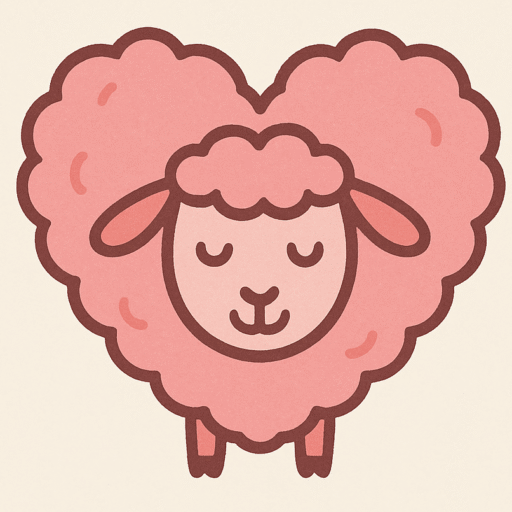Roald Dahl
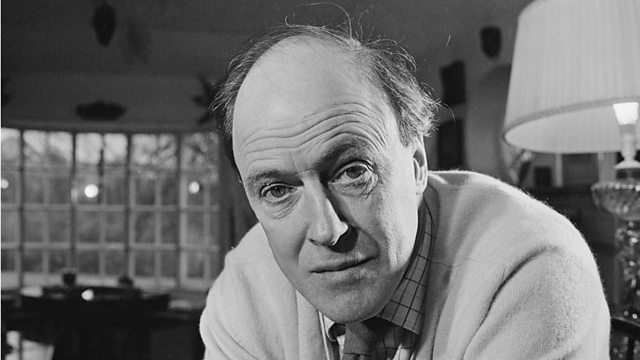
ROALD DAHL was a British novelist, short-story writer, poet, screenwriter and war-time fighter pilot. His books have sold more than 250 million copies worldwide.
Dahl served in the Royal Air Force during the Second World War. He became a fighter ace, scoring five confirmed victories, and, subsequently, an intelligence officer, rising to the rank of acting wing commander.
He rose to prominence as a writer in the 1940s with works for children and for adults, and became one of the world’s best-selling fiction authors. He has been referred to as “one of the greatest storytellers for children of the 20th Century” and his books have been published in almost 60 languages.
His awards for contribution to literature include the 1983 World Fantasy Award for Life Achievement and the British Book Awards’ Children’s Author of the Year in 1990. In 2008, The Times placed Dahl 16th on its list of ‘The 50 greatest British writers since 1945’.
Dahl’s short stories are known for their unexpected endings, and his children’s books for their unsentimental, macabre, often darkly comic mood, featuring villainous adult enemies of the child characters. His books champion the kind-hearted and feature an underlying warm sentiment.
His works for children include James and the Giant Peach, Charlie and the Chocolate Factory, Matilda, The Witches, Fantastic Mr Fox, The BFG, The Twits and George’s Marvellous Medicine. His adult works include Tales of the Unexpected.
A major part of Dahl’s literary influences stemmed from his childhood. In his younger days, he was an avid reader, especially awed by fantastic tales of heroism and triumph. Amongst his favourite authors were Rudyard Kipling, Charles Dickens, William Makepeace Thackeray and Frederick Marryat, and their works made a lasting mark on his life and writing.
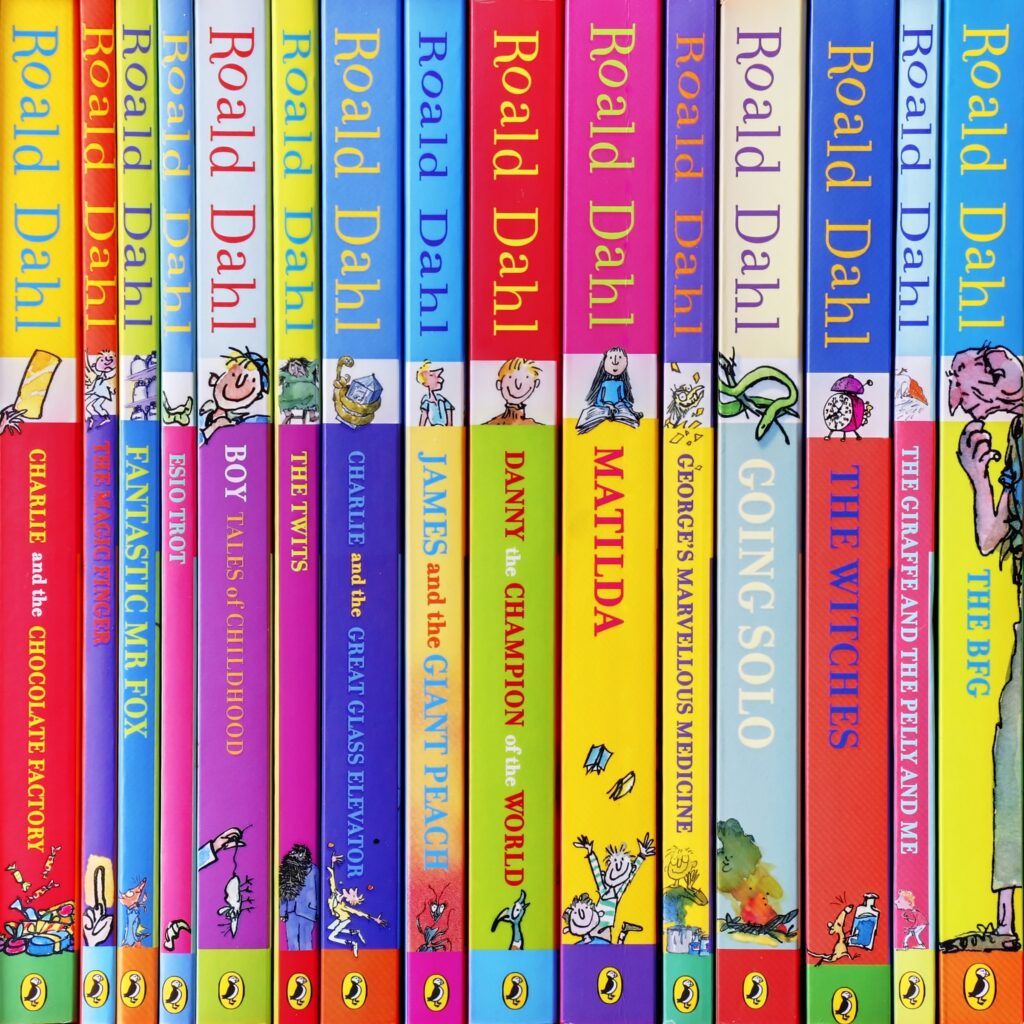
Joe Sommerlad in The Independent wrote, “Dahl’s novels are often dark affairs, filled with cruelty, bereavement and Dickensian adults prone to gluttony and sadism. The author clearly felt compelled to warn his young readers about the evils of the world, taking the lesson from earlier fairy tales that they could stand hard truths and would be the stronger for hearing them.”
Dahl was born on September 13, 1916, in Llandaff, Cardiff, to Norwegian immigrant parents. Dahl’s father had immigrated to the UK from Sarpsborg in Norway and settled in Cardiff in the 1880s with his first wife, a Frenchwoman named Marie Beaurin-Gresser. They had two children together (Ellen Marguerite and Louis) before her death in 1907. His mother immigrated to the UK and married his father in 1911.
Dahl was named after Norwegian polar explorer Roald Amundsen. His first language was Norwegian, which he spoke at home with his parents and his sisters Astri, Alfhild, and Else. The children were raised in the Lutheran faith and were baptised at the Norwegian Church, Cardiff.
Dahl’s sister Astri died from appendicitis at age seven in 1920 when Dahl was three years old, and his father died of pneumonia at age 57 several weeks later. Later that year, his younger sister Asta was born. Dahl’s mother decided to remain in Wales instead of returning to Norway to live with relatives.
Dahl first attended The Cathedral School, Llandaff. At age eight, he and four of his friends were caned by the headmaster after putting a dead mouse in a jar of gobstoppers at the local sweet shop, which was owned by a “mean and loathsome” old woman named Mrs Pratchett.
The five boys named their prank the “Great Mouse Plot of 1924”. Gobstoppers were a favourite sweet among British schoolboys between the two World Wars, and Dahl referred to them in his fictional everlasting gobstopper which was featured in Charlie and the Chocolate Factory.
Dahl transferred to St Peter’s boarding school in Weston-super-Mare. His parents had wanted him to be educated at an English public school, and this proved to be the nearest because of the regular ferry link across the Bristol Channel. Dahl’s time at St Peter’s was unpleasant; he was very homesick and wrote to his mother every week but never revealed his unhappiness to her.
After her death in 1967, he learned that she had saved every one of his letters; they were broadcast in abridged form as BBC Radio 4’s Book of the Week in 2016 to mark the centenary of his birth. Dahl wrote about his time at St Peter’s in his autobiography Boy: Tales of Childhood.
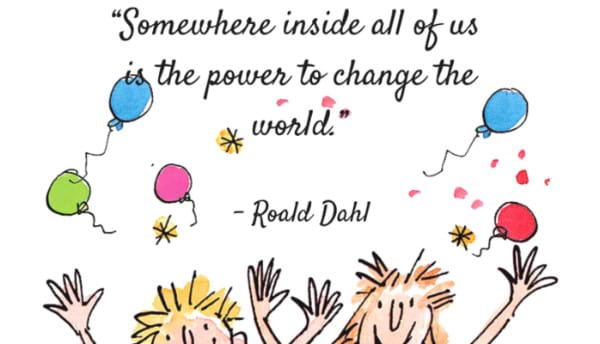
From 1929, when he was 13, Dahl attended Repton School in Derbyshire. He disliked the hazing and described an environment of ritual cruelty and status domination, with younger boys having to act as personal servants for older boys, frequently subject to terrible beatings. Dahl expresses some of these darker experiences in his writings, which is also marked by his hatred of cruelty and corporal punishment.
According to Dahl’s autobiography, a friend named Michael was viciously caned by the school’s headmaster. Writing in that same book, Dahl reflected: “All through my school life I was appalled by the fact that masters and senior boys were allowed literally to wound other boys, and sometimes quite severely… I couldn’t get over it. I never have got over it.”
He was never seen as a particularly talented writer in his school years, with one of his English teachers writing in his school report: “I have never met anybody who so persistently writes words meaning the exact opposite of what is intended.”
During his years at Repton, the Cadbury chocolate company occasionally sent boxes of new chocolates to the school to be tested by the pupils. Dahl dreamt of inventing a new chocolate bar that would win the praise of Mr Cadbury himself; this inspired him in writing his third children’s book, Charlie and the Chocolate Factory and to refer to chocolate in other children’s books.
Throughout his childhood and adolescent years, Dahl spent the majority of his summer holidays with his mother’s family in Norway. He wrote about many happy memories from those visits in Boy: Tales of Childhood, such as when he replaced the tobacco in his half-sister’s fiancé’s pipe with goat droppings.
Dahl’s first published work, inspired by a meeting with CS Forester, was A Piece of Cake, in 1942. The story, about his wartime adventures, was bought by The Saturday Evening Post for US$1,000 (a substantial sum in 1942) and published under the title Shot Down Over Libya.
His first children’s book was The Gremlins, published in 1943, about mischievous little creatures that were part of Royal Air Force folklore. The RAF pilots blamed the gremlins for all the problems with the aircraft.
Dahl went on to write some of the best-loved children’s stories of the 20th Century, but also had a successful parallel career as the writer of macabre adult short stories, which often blended humour and innocence with surprising plot twists. The Mystery Writers of America presented Dahl with three Edgar Awards for his work, and many were originally written for American magazines such as Collier’s, Ladies Home Journal, Harper’s, Playboy and The New Yorker.
Works such as Kiss Kiss subsequently collected Dahl’s stories into anthologies, and gained significant popularity. Dahl wrote more than 60 short stories; they have appeared in numerous collections, some only being published in book form after his death. His three Edgar Awards were given for: in 1954, the collection Someone Like You; in 1959, the story The Landlady; and in 1980, the episode of Tales of the Unexpected based on Skin.
One of his more famous adult stories, The Smoker, also known as Man from the South, was filmed twice as both 1960 and 1985 episodes of Alfred Hitchcock Presents, filmed as a 1979 episode of Tales Of The Unexpected, and also adapted into Quentin Tarantino’s segment of the film Four Rooms (1995).
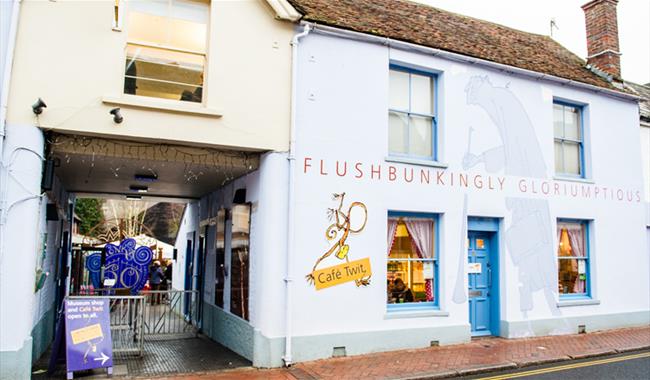
This oft-anthologised classic concerns a man in Jamaica who wagers with visitors in an attempt to claim the fingers from their hands. The original 1960 version in the Hitchcock series stars Steve McQueen and Peter Lorre. Five additional Dahl stories were used in the Hitchcock series. Dahl was credited with teleplay for two episodes, and four of his episodes were directed by Hitchcock himself, an example of which was Lamb to the Slaughter (1958).
His short story collection Tales of the Unexpected was adapted to a successful TV series of the same name, beginning with Man from the South.
Some of Dahl’s short stories are supposed to be extracts from the diary of his (fictional) Uncle Oswald, a rich gentleman whose sexual exploits form the subject of these stories. In his novel My Uncle Oswald, the uncle engages a temptress to seduce 20th Century geniuses and royalty with a love potion secretly added to chocolate truffles made by Dahl’s favourite chocolate shop, Prestat of Piccadilly, London. Memories with Food at Gipsy House, written with his wife Felicity and published posthumously in 1991, was a mixture of recipes, family reminiscences and Dahl’s musings on favourite subjects such as chocolate, onions and claret.
The last book published in his lifetime, Esio Trot, released in January 1990, marked a change in style for the author. Unlike other Dahl works (which often feature tyrannical adults and heroic/magical children), it is the story of an old, lonely man trying to make a connection with a woman he has loved from afar.
In 1994, the English language audiobook recording of the book was provided by Monty Python member Michael Palin. In 2015, it was adapted by screenwriter Richard Curtis into an acclaimed BBC comedy television film, Roald Dahl’s Esio Trot, featuring Dustin Hoffman and Judi Dench as the couple.
Dahl’s children’s works are usually told from the point of view of a child. They typically involve adult villains who hate and mistreat children, and feature at least one good’ adult to counteract the villain(s). These stock characters are possibly a reference to the abuse that Dahl stated that he experienced in the boarding schools he attended.
Dahl’s books see the triumph of the child; children’s book critic Amanda Craig said: “He was unequivocal that it is the good, young and kind who triumph over the old, greedy and the wicked.”
Dahl was “a grown-up being mischievous”, observed illustrator Quentin Blake on the lasting appeal of Dahl’s children’s books. “He addresses you, a child, as somebody who knows about the world. He was a grown-up – and he was bigger than most – who is on your side. That must have something to do with it.”
Anna Leskiewicz wrote in The Telegraph: “It’s often suggested that Dahl’s lasting appeal is a result of his exceptional talent for wriggling his way into children’s fantasies and fears, and laying them out on the page with anarchic delight. Adult villains are drawn in terrifying detail, before they are exposed as liars and hypocrites, and brought tumbling down with retributive justice, either by a sudden magic or the superior acuity of the children they mistreat.”
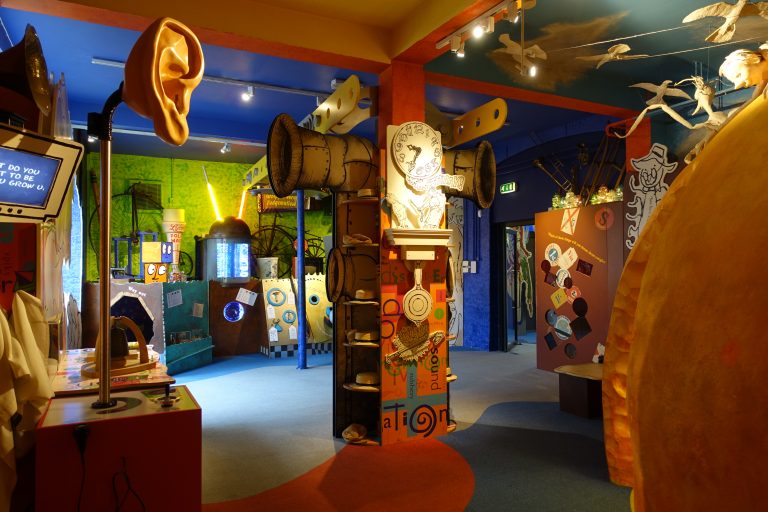
While his whimsical fantasy stories feature an underlying warm sentiment, they are often juxtaposed with grotesque, darkly comic and sometimes harshly violent scenarios. The Witches, George’s Marvellous Medicine and Matilda are examples of this formula.
The BFG follows, with the good giant (the BFG or ‘Big Friendly Giant’) representing the ‘good adult’ archetype and the other giants being the ‘bad adults’. This formula is also somewhat evident in Dahl’s film script for Chitty Chitty Bang Bang. Class-conscious themes also surface in works such as Fantastic Mr Fox and Danny, the Champion of the World where the unpleasant wealthy neighbours are outwitted.
Dahl also features characters who are very fat, usually children. Augustus Gloop, Bruce Bogtrotter and Bruno Jenkins are a few of these characters, although an enormous woman named Aunt Sponge features in James and the Giant Peach and the nasty farmer Boggis in Fantastic Mr Fox is an enormously fat character.
All of these characters (with the possible exception of Bruce Bogtrotter) are either villains or simply unpleasant gluttons. They are usually punished for this: Augustus Gloop drinks from Willy Wonka’s chocolate river, disregarding the adults who tell him not to, and falls in, getting sucked up a pipe and nearly being turned into fudge.
In Matilda, Bruce Bogtrotter steals cake from the evil headmistress, Miss Trunchbull, and is forced to eat a gigantic chocolate cake in front of the school. In The Witches, Bruno Jenkins is lured by the witches (whose leader is the Grand High Witch) into their convention with the promise of chocolate, before they turn him into a mouse. Aunt Sponge is flattened by a giant peach.
When Dahl was a boy his mother used to tell him and his sisters tales about trolls and other mythical Norwegian creatures, and some of his children’s books contain references or elements inspired by these stories, such as the giants in The BFG, the fox family in Fantastic Mr Fox and the trolls in The Minpins.
Receiving the 1983 World Fantasy Award for Life Achievement, Dahl encouraged his children and his readers to let their imagination run free. His daughter Lucy stated: “His spirit was so large and so big he taught us to believe in magic.”
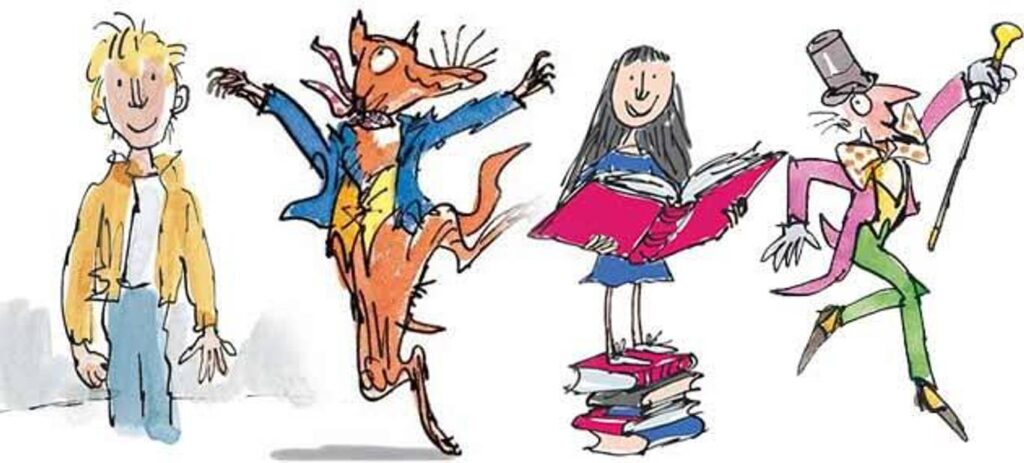
Dahl was also famous for his inventive, playful use of language, which was a key element to his writing. He invented new words by scribbling down his words before swapping letters around and adopting spoonerisms and malapropisms.
The lexicographer Susan Rennie stated that Dahl built his new words on familiar sounds, adding: “He didn’t always explain what his words meant, but children can work them out because they often sound like a word they know, and he loved using onomatopoeia. For example, you know that something lickswishy and delumptious is good to eat, whereas something uckyslush or rotsome is definitely not! He also used sounds that children love to say, like squishous and squizzle, or fizzlecrump and fizzwiggler.”
A UK television special titled Roald Dahl’s Revolting Rule Book which was hosted by Richard E Grant and aired on September 22, 2007, commemorated Dahl’s 90th birthday and also celebrated his impact as a children’s author in popular culture. It also featured eight main rules he applied on all his children’s books: Just add chocolate; Adults can be scary; Bad things happen; Revenge is sweet; Keep a wicked sense of humour; Pick perfect pictures; Films are fun…but books are better!; Food is fun!.
In 2016, marking the centenary of Dahl’s birth, Rennie compiled The Oxford Roald Dahl Dictionary which includes many of his invented words and their meaning. Rennie commented that some of Dahl’s words have already escaped his world, for example, Scrumdiddlyumptious: “Food that is utterly delicious”.
In his poetry, Dahl gives a humourous re-interpretation of well-known nursery rhymes and fairy tales, providing surprise endings in place of the traditional happily-ever-after. Dahl’s collection of poems Revolting Rhymes is recorded in audiobook form.
For a brief period in the 1960s, Dahl wrote screenplays. Two, the James Bond film You Only Live Twice and Chitty Chitty Bang Bang, were adaptations of novels by Ian Fleming. Dahl also began adapting his own novel Charlie and the Chocolate Factory, which was completed and rewritten by David Seltzer after Dahl failed to meet deadlines, and produced as the film Willy Wonka & the Chocolate Factory (1971).
Dahl later disowned the film, saying he was “disappointed” because “he thought it placed too much emphasis on Willy Wonka and not enough on Charlie”. He was also “infuriated” by the deviations in the plot devised by Seltzer in his draft of the screenplay. This resulted in his refusal for any more versions of the book to be made in his lifetime, as well as an adaptation for the sequel Charlie and the Great Glass Elevator.
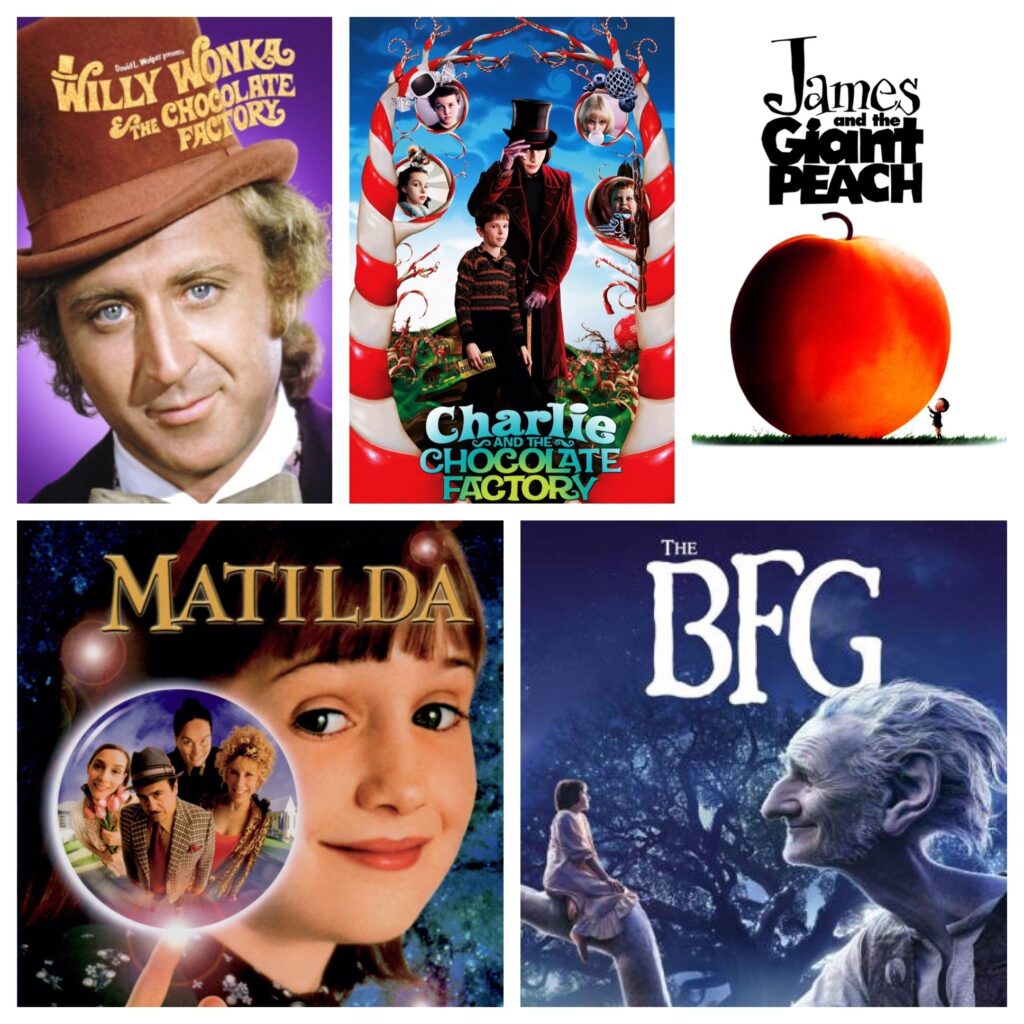
Finding too many distractions in his house, Dahl remembered the Welsh poet Dylan Thomas had found a peaceful shed to write in close to home. Dahl travelled to visit Thomas’s hut in Carmarthenshire in the 1950s and, after taking a look inside, decided to make a replica of it to write in.
In 1961, Dahl hosted and wrote for a science fiction and horror television anthology series called Way Out, which preceded the Twilight Zone series on the CBS network for 14 episodes from March to July. One of the last dramatic network shows shot in New York City, the entire series is available for viewing at The Paley Center for Media in New York City and Los Angeles. He also wrote for the satirical BBC comedy programme That Was the Week That Was, which was hosted by David Frost.
In the 1986 New Years Honours List, Dahl was offered an appointment to Officer of the Order of the British Empire (OBE), but turned it down. He reportedly wanted a knighthood so that his wife would be Lady Dahl.
Dahl died on November 23, 1990, at the age of 74 of a rare cancer of the blood, myelodysplastic syndrome, in Oxford, and was buried in the cemetery at the Church of St Peter and St Paul, Great Missenden, Buckinghamshire, England. According to his granddaughter, the family gave him a “sort of Viking funeral”.
He was buried with his snooker cues, some very good burgundy, chocolates, HB pencils and a power saw. Today, children continue to leave toys and flowers by his grave. In November 1996, the Roald Dahl Children’s Gallery was opened at the Buckinghamshire County Museum in nearby Aylesbury.
The main-belt asteroid 6223 Dahl, discovered by Czech astronomer Antonín Mrkos, was named in his memory in 1996.
In 2002, one of Cardiff Bay’s modern landmarks, the Oval Basin plaza, was renamed Roald Dahl Plass. Plass is Norwegian for ‘place’ or ‘square’, alluding to the writer’s Norwegian roots.
In 2016, the city celebrated the centenary of Dahl’s birth in Llandaff. Welsh Arts organisations, including National Theatre Wales, Wales Millennium Centre and Literature Wales, came together for a series of events, titled Roald Dahl 100, including a Cardiff-wide City of the Unexpected, which marked his legacy.
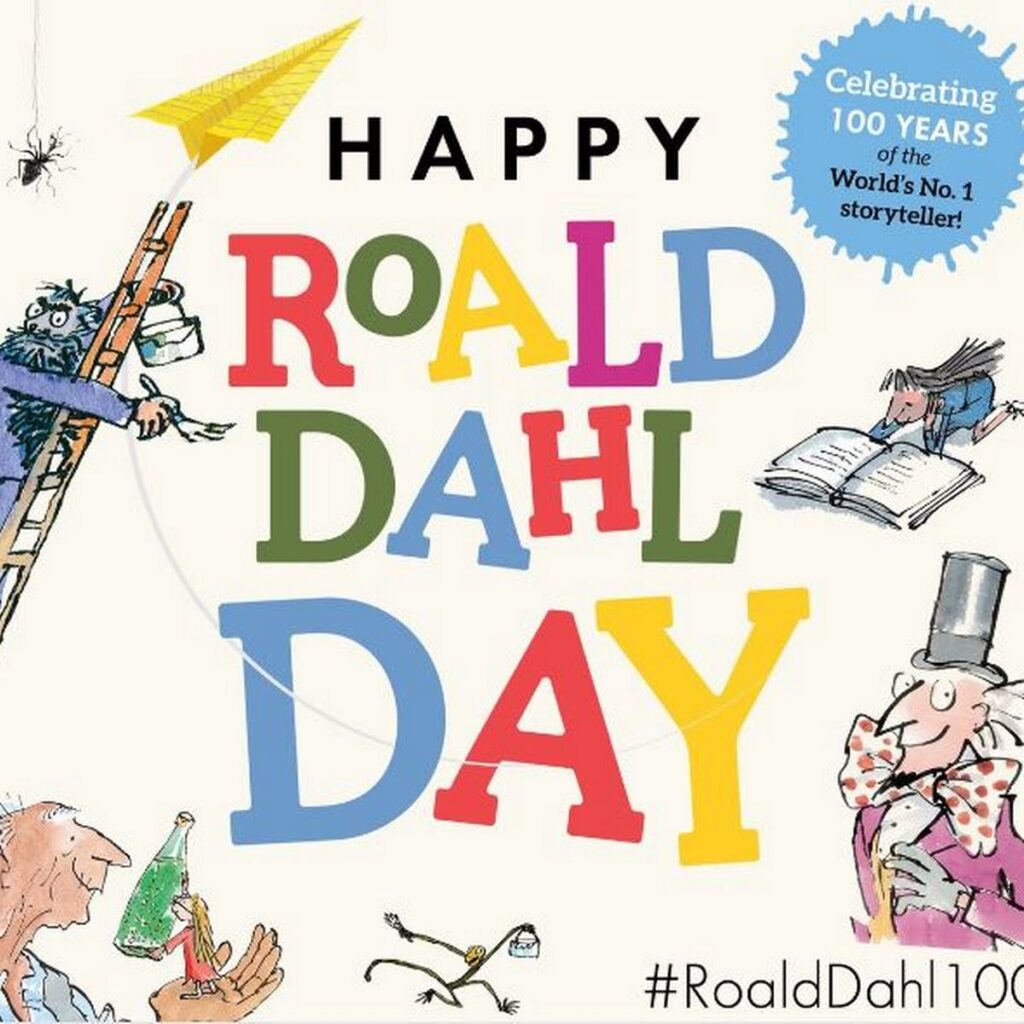
Dahl’s charitable commitments in the fields of neurology, haematology and literacy during his life were continued by his widow after his death, through Roald Dahl’s Marvellous Children’s Charity, formerly known as the Roald Dahl Foundation. The charity provides care and support to seriously ill children and young people throughout the UK.
In June 2005, the Roald Dahl Museum and Story Centre in the author’s home village of Great Missenden was officially opened by Cherie Blair, wife of UK Prime Minister Tony Blair, to celebrate the work of Dahl and advance his work in literacy education. Over 50,000 visitors from abroad, mainly from Australia, Japan, the United States and Germany, travel to the village museum every year.
In 2008, the UK charity Booktrust and Children’s Laureate Michael Rosen inaugurated The Roald Dahl Funny Prize, an annual award to authors of humorous children’s fiction.
On September 14, 2009 (the day after what would have been Dahl’s 93rd birthday), the first blue plaque in his honour was unveiled in Llandaff. Rather than commemorating his place of birth, however, the plaque was erected on the wall of the former sweet shop (and site of ‘The Great Mouse Plot of 1924’) that features in the first part of his autobiography Boy. It was unveiled by his widow Felicity and son Theo.
In 2018, Weston-super-Mare, the town described by Dahl as a “seedy seaside resort”, unveiled a blue plaque dedicated to him, on the site of the since-demolished boarding school Dahl attended, St Peter’s. The anniversary of Dahl’s birthday on September 13 is celebrated as ‘Roald Dahl Day’ in Africa, the United Kingdom and Latin America.
In honour of Dahl, the Royal Gibraltar Post Office issued a set of four stamps in 2010 featuring Quentin Blake’s original illustrations for four of the children’s books written by Dahl during his long career; The BFG, The Twits, Charlie and the Chocolate Factory, and Matilda. A set of six stamps was issued by Royal Mail in 2012, featuring Blake’s illustrations for Charlie and the Chocolate Factory, The Twits, The Witches, Matilda, Fantastic Mr Fox, and James and the Giant Peach.
Steven Spielberg read The BFG to his children when they were young, stating the book celebrates the fact that it’s okay to be different as well as to have an active imagination: “It’s very important that we preserve the tradition of allowing young children to run free with their imaginations and magic and imagination are the same thing.”
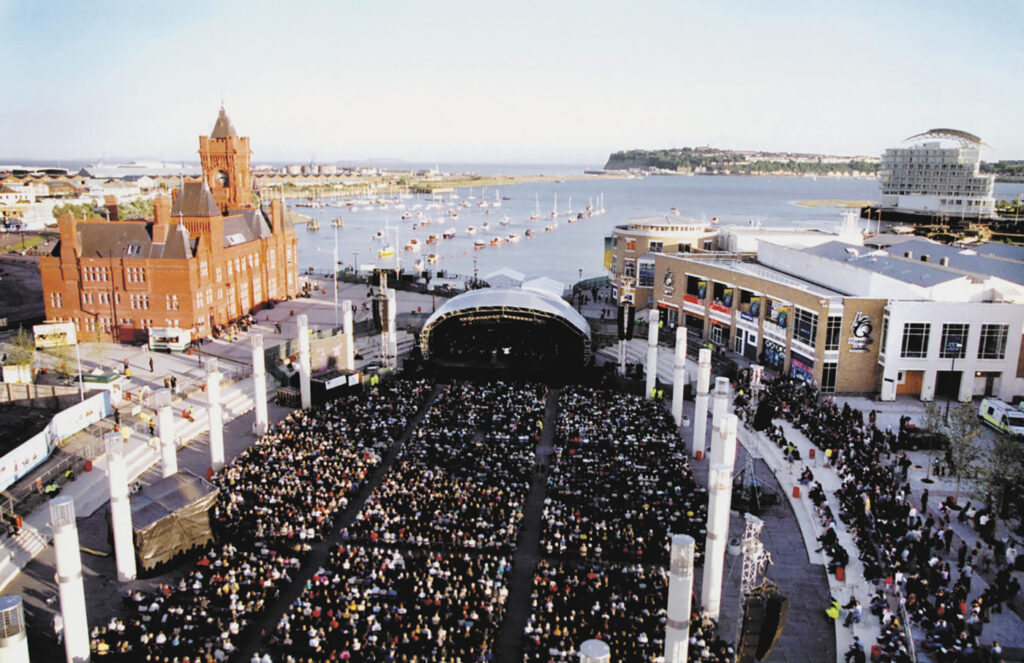
In 2012, Dahl was among the British cultural icons selected by artist Sir Peter Blake to appear in a new version of his most famous artwork – the Beatles’ Sgt Pepper’s Lonely Hearts Club Band album cover – to celebrate the British cultural figures of his life he most admires.
In 2017, the airline Norwegian announced Dahl’s image would appear on the tail fin one of their Boeing 737-800 aircraft. He is one of the company’s six ‘British tail-fin heroes’, joining Queen frontman Freddie Mercury, England World Cup winner Bobby Moore, novelist Jane Austen, pioneering pilot Amy Johnson and aviation entrepreneur Freddie Laker.
Also in 2017, in a UK poll of the greatest authors, songwriters, artists and photographers, Dahl was named the greatest storyteller of all time, ranking ahead of Dickens, Shakespeare, JK Rowling and Spielberg.
RETURN TO WELSH GREATS IN PROFILE
BACK TO HOME PAGE
